Discover 11 hidden attractions, cool sights, and unusual things to do in Johnson City (United States). Don't miss out on these must-see attractions: Gray Fossil Site, Mountain Home National Cemetery, and Tipton-Haynes State Historic Site. Also, be sure to include Thankful Baptist Church in your itinerary.
Below, you can find the list of the most amazing places you should visit in Johnson City (Tennessee).
Table of Contents
Gray Fossil Site
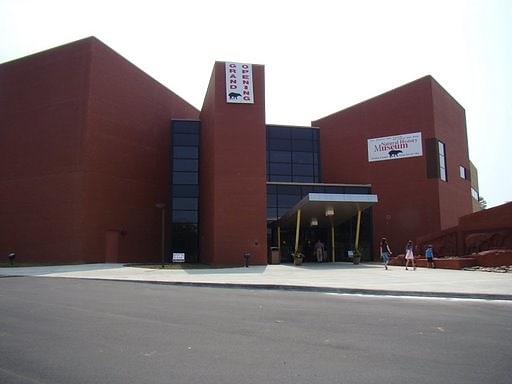
Museum in Washington County, Tennessee. The Gray Fossil Site is an Early Pliocene assemblage of fossils dating between 4.5 and 4.9 million years old, located near the town of Gray in Washington County, Tennessee. The site was discovered during road construction in May 2000, after which local officials decided to preserve the site for research and education. The site became part of East Tennessee State University, and the Gray Fossil Site & Museum was opened on the site in 2007.
The ancient habitat of the Gray Fossil Site was a pond formed within a sinkhole surrounded by a warm, wet forest. The fossils found at the site represent the ancient plants and animals that lived and died in and around the sinkhole pond.
As the first site of its age known from the Appalachian region, the Gray Fossil Site is a unique window into the past. Research at the site has yielded many surprising discoveries, including new species of red panda, rhinoceros, pond turtle, hickory tree, and more. The site also hosts the largest known assemblage of fossil tapirs.[1]
Address: 1212 Suncrest Dr, 37615-4114 Gray
Mountain Home National Cemetery
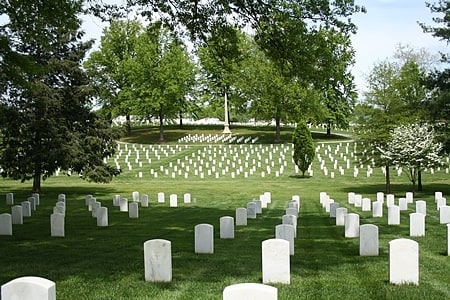
Cemetery. Mountain Home National Cemetery is a United States National Cemetery located at Mountain Home, within Johnson City in Washington County, Tennessee. Administered by the United States Department of Veterans Affairs, it encompasses 99.7 acres, and as of 2018, had over 17,000 interments.[2]
Address: 53 Memorial Dr, 37684 Mountain Home
Tipton-Haynes State Historic Site
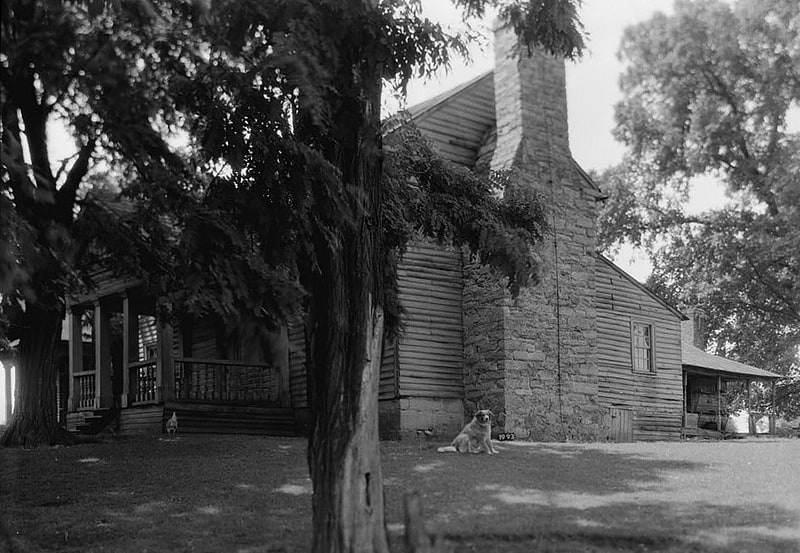
Historical place in Johnson City, Tennessee. Tipton-Haynes State Historic Site, known also as Tipton-Haynes House, is a Tennessee State Historic Site located at 2620 South Roan Street in Johnson City, Tennessee. It includes a house originally built in 1784 by Colonel John Tipton, and 10 other buildings, including a smokehouse, pigsty, loom house, still house, springhouse, log barn and corncrib. There is also the home of George Haynes, a Haynes family slave.
Tipton led the opposition to the State of Franklin, an unsuccessful attempt by the Tennessee Valley residents to form a state in the mid-1780s. In late February 1788, the so-called "Battle of Franklin" took place when a militia led by John Sevier, who had been elected governor of the proposed state, surrounded the Tipton farm and demanded the return of several slaves Tipton had confiscated from Sevier upon court order from the State of North Carolina. When Tipton refused, gunfire was exchanged, followed by a two-day standoff. Sevier's forces were finally scattered by the Sullivan County militia. The Franklin movement largely collapsed following this engagement.
Following Tipton's death in 1813, the farm passed to his son, John Tipton, Jr. After John Tipton, Jr. died in 1831, his heirs sold the property to a local land speculator, David Haynes, in 1837. In 1839, Haynes gave the farm to his son, Landon Carter Haynes, as a wedding present. This younger Haynes enlarged the house and added weatherboarding. A Confederate senator during the Civil War, Landon Carter Haynes faced death threats from East Tennessee Unionists and was forced to flee the region in 1865. He sold the farm to his brother-in-law, Jonesborough publisher Lawson Gifford. In 1945, Gifford's grandson, David Simmerly, sold the farm to the Tennessee Historical Commission, though he continued living there until his death.
It is one of 18 State Historic Sites and is operated by the Tipton-Haynes Association under an agreement with the Tennessee Historical Commission. It was listed on the National Register of Historic Places in 1970.[3]
Address: 2620 S Roan St, 37601-7585 Johnson City
Thankful Baptist Church
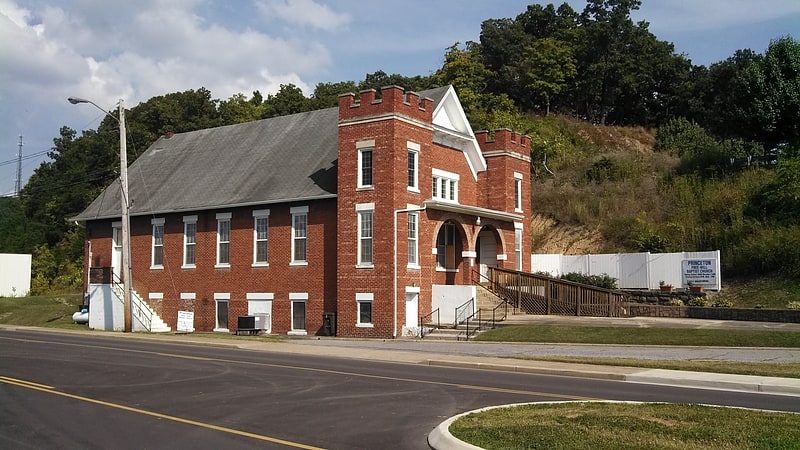
Church building in Johnson City, Tennessee. Princeton Free Will Baptist Church, formerly Thankful Baptist Church, is a historic church building at 104 Water Street in Johnson City, Tennessee.
The brick church was built in 1912 to serve Thankful Baptist Church, an African-American congregation. Thankful Baptist Church moved to a new location on Watauga Avenue in 1975. In 1977, the congregation sold the Water Street church property to Princeton Free Will Baptist Church.
The building was added to the National Register of Historic Places in 2001.[4]
Nelson Fine Art and Frames
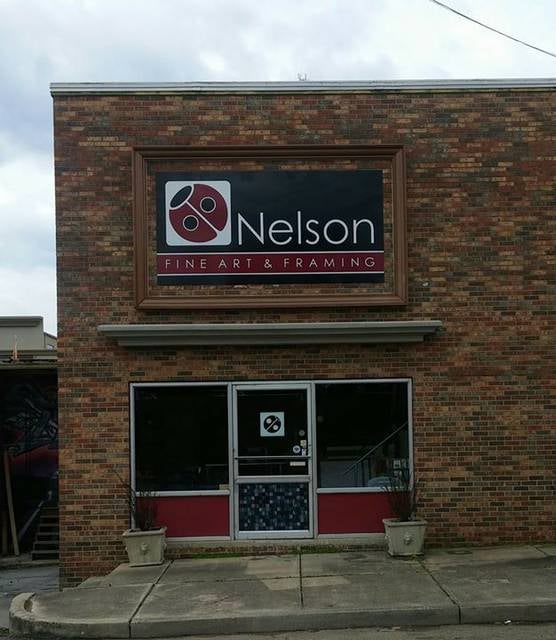
Museum, Art gallery, Shopping
Address: 324 E Main St, 37601-5733 Johnson City
Johnson City Public Library
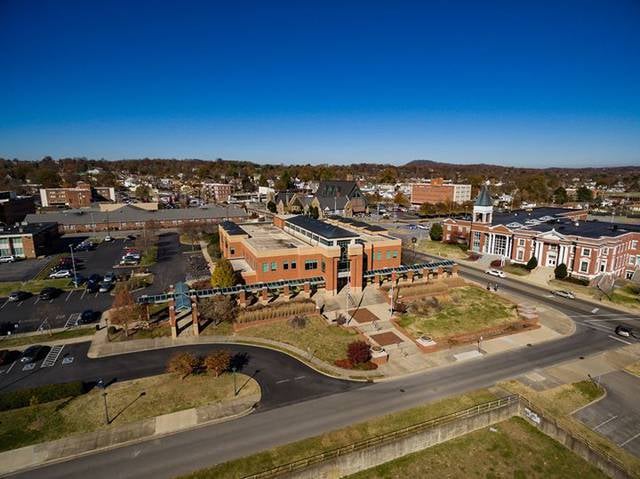
Library
Address: 100 W Millard St, 37604-4731 Johnson City
Willow Springs Park
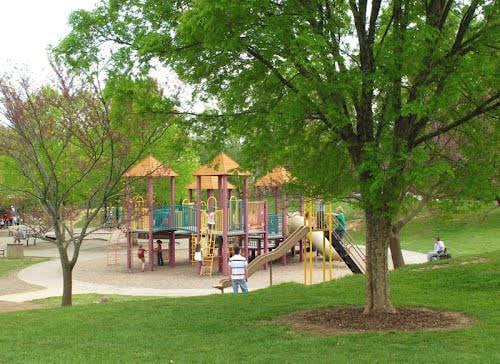
Park, Relax in park
Address: 1201 Huffine Rd, 37604-2810 Johnson City
WINGED DEER PARK
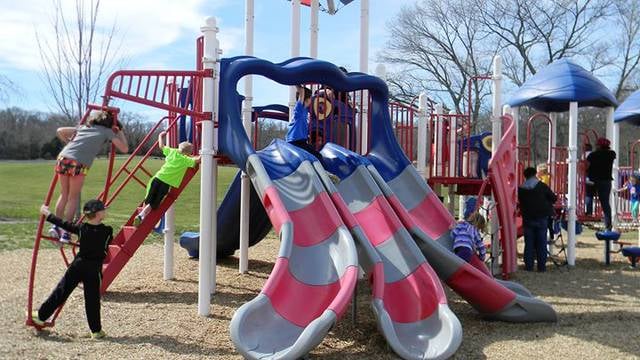
Park, Relax in park, Playground
Address: 4137 Bristol Hwy, 37601-2933 Johnson City
Metro Kiwanis Park & Friendship Gardens
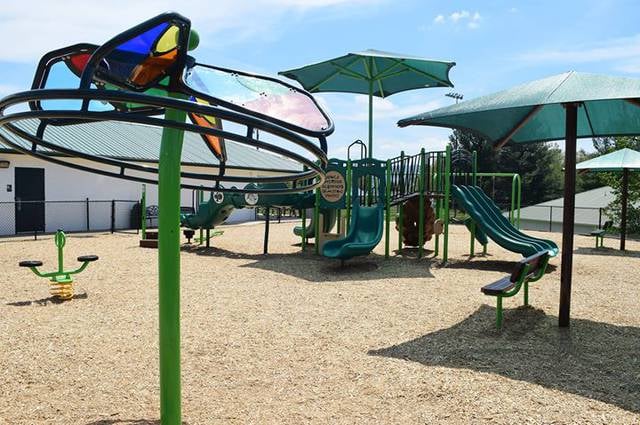
Park, Relax in park
Address: 817 Guaranda Dr, Johnson City
Shelbridge
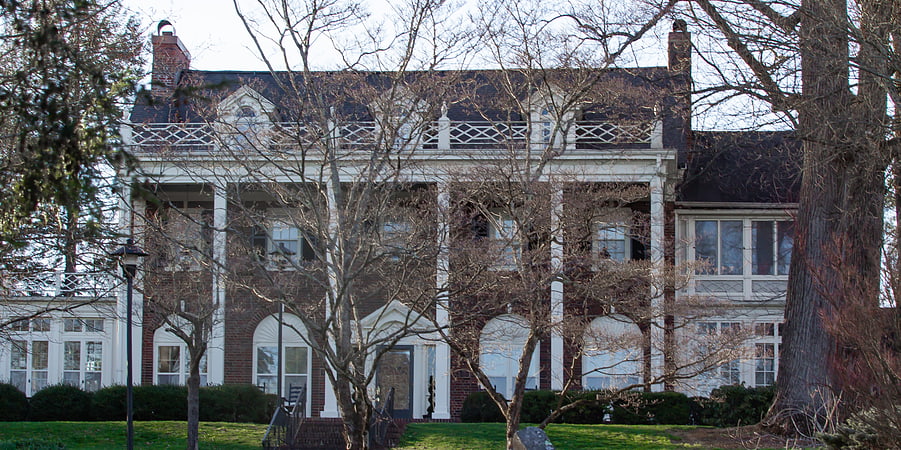
Shelbridge is a historic three-story mansion in Johnson City, Tennessee, U.S. It serves as the official residence of the president of East Tennessee State University.[5]
Aquone
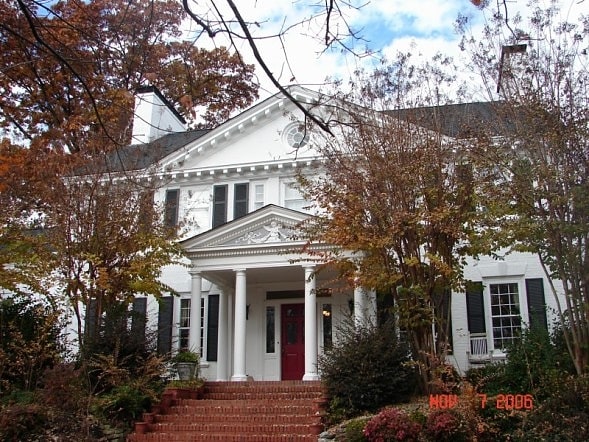
Aquone is the home in Johnson City, Tennessee, where Samuel Cole Williams, noted Tennessee jurist and historian, lived in retirement. The home is listed on the National Register of Historic Places.
Aquone was built in 1925. It is a 2-1/2-story brick structure in the Colonial Revival style. Leland Cardwell, a Johnson City architect, designed the house, modeling it after the design of an unidentified Colonial mansion built in Maryland in 1748. The house is on a 3.6-acre (1.5 ha) lot between Roan Street and U.S. Highway 11E and is screened from those roads by trees and a terraced lawn. At the time of its construction, the site was north of the city limits of Johnson City.
The interior of Aquone is laid out according to the center hall plan, with an entrance hall and stairway flanked by a large formal living room on one side and a large formal dining room on the other side. An unusual feature of the house is a one and one-half-story library that is said to have been modeled after Sir Walter Scott's study in his home at Abbotsford House. The living room and dining room both have fireplaces with Georgian-influenced mantels. The library fireplace also has a Georgian design.
The name Aquone is reported to be a Cherokee word for "resting place."[6]